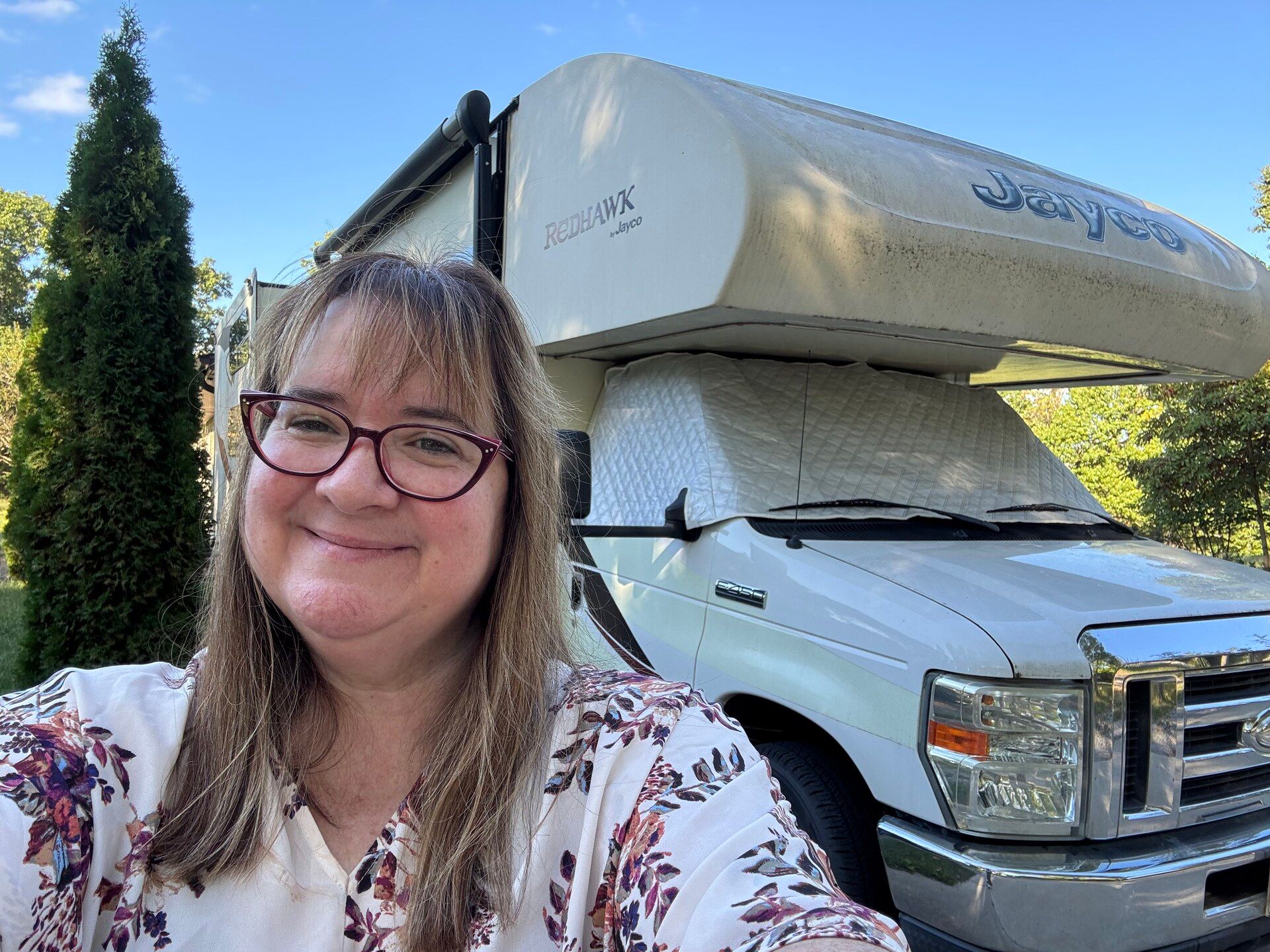
First United Methodist Church of Bentonville is looking for partners to help it build affordable housing on its downtown Bentonville campus.
Located at 201 NW 2nd St., the church has about one acre of empty land, as well as a parking lot that could be part of the development.

Michelle J. Morris, lead pastor at First United Methodist, has firsthand experience with the difficulties of the Bentonville housing market.
She joined the church staff a few years ago. First, she rented a house but got booted because the owner sold it for a “ton of money.” At another rental, the rent kept increasing.
Now, she lives full-time in an RV on land owned by a church member, despite making a “good salary” from the church.
“I found myself as a single person looking for creative ways to solve my housing crisis, and I moved into an RV and have been living in it for a little bit over a year,” she said. “I recognize, as a pastor, a lot of times we are called to prophetic acts, which means that we live alongside our people. We are in the same situations as our people are, and I found myself reflecting those that were struggling to get housing in the area.”
Morris and members of her congregation have spent the last six months in a training program called Faithful Foundations that was designed to help churches develop affordable housing proposals.
Five other churches across Northwest Arkansas participated in the program, which was organized by Urban Land Institute (ULI) Northwest Arkansas, a professional society for people working in real estate, construction, and land management.
The program culminated in a pitch event on Monday, Oct. 20, where churches shared their progress and outlined what they need to move their projects forward.
At the event, ULI’s Candi Adams said that churches could be a major partner addressing the rising cost of housing in Northwest Arkansas.
“To date, we have found over 1,600 parcels of land covering seven square miles, owned by more than 650 faith organizations. Much of that land is underutilized, but it's in locations that are fully appropriate for the construction of affordable housing,” Adams said.
The number of income-restricted housing units that First United Methodist could build on the site is unclear at this stage. The project could also include community gathering spaces, housing for the church’s pastor, and ground-floor commercial space and market-rate apartments to support the project.
The church started Second Street Pantry in 2011, which now serves between 500 and 900 people each week and has seen demand double in the past two years. Working toward affordable housing solutions can be seen as a different tactic to address the same problems, and a church workgroup dedicated to pursuing solutions predates participation in the Faithful Foundations program.
First United Methodist has been at the downtown site for about 175 years, and its property is in a desirable area with many amenities. It could be sold for a lot of money, but Ken Weatherford, who is both a church member and a local real estate professional, said the church isn’t interested in selling.
“There is absolutely no way that you can come in and buy that land and then somehow develop it to be affordable housing, right?” he said. “And so it's an absolutely incredible asset that we're sitting on. We don't want to let it go, because we know how valuable it is to be able to make a difference in our community.”
He was visibly fired up speaking about the pinch that people are experiencing due to housing costs.
“I've got teachers that work in my kids' school that live an hour and a half away. It's bloody ridiculous, folks. Like, this shouldn't be allowed. It's just awful, and we've got this wonderful piece of property that we can do something great with,” he said.
There are several obstacles to getting the project started. During the presentation, a few were highlighted: the need to preserve church parking with any redevelopment, concerns about sewer capacity in the area, and securing the necessary financial backing.
But, Morris said, “with God, all things are possible.”
Next steps include mobilizing the broader church congregation around the project, as well as developing designs and identifying financing options.
Developers and other partners interested in working with the church can reach out to Morris at [email protected] or 479-273-2712.
